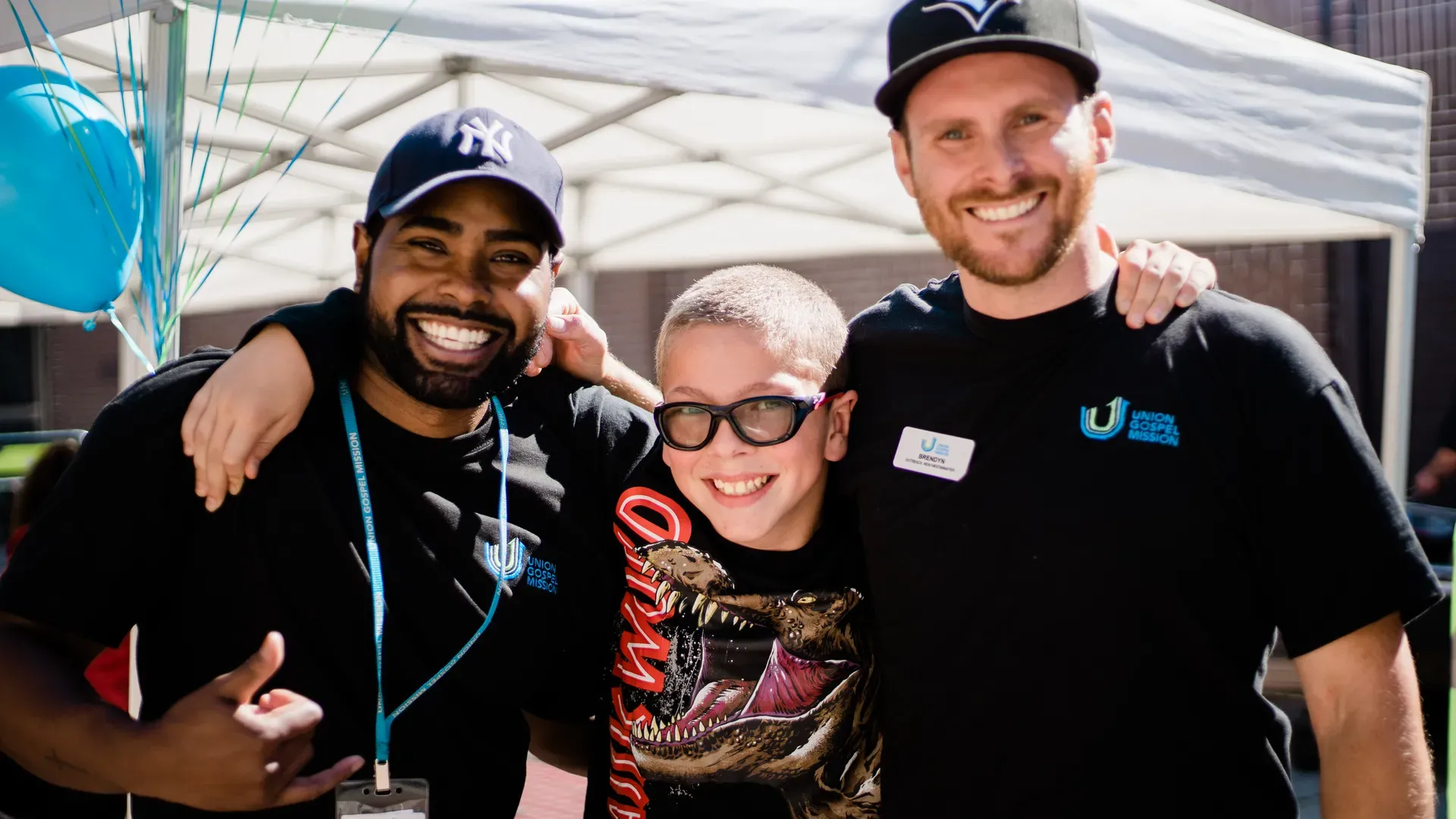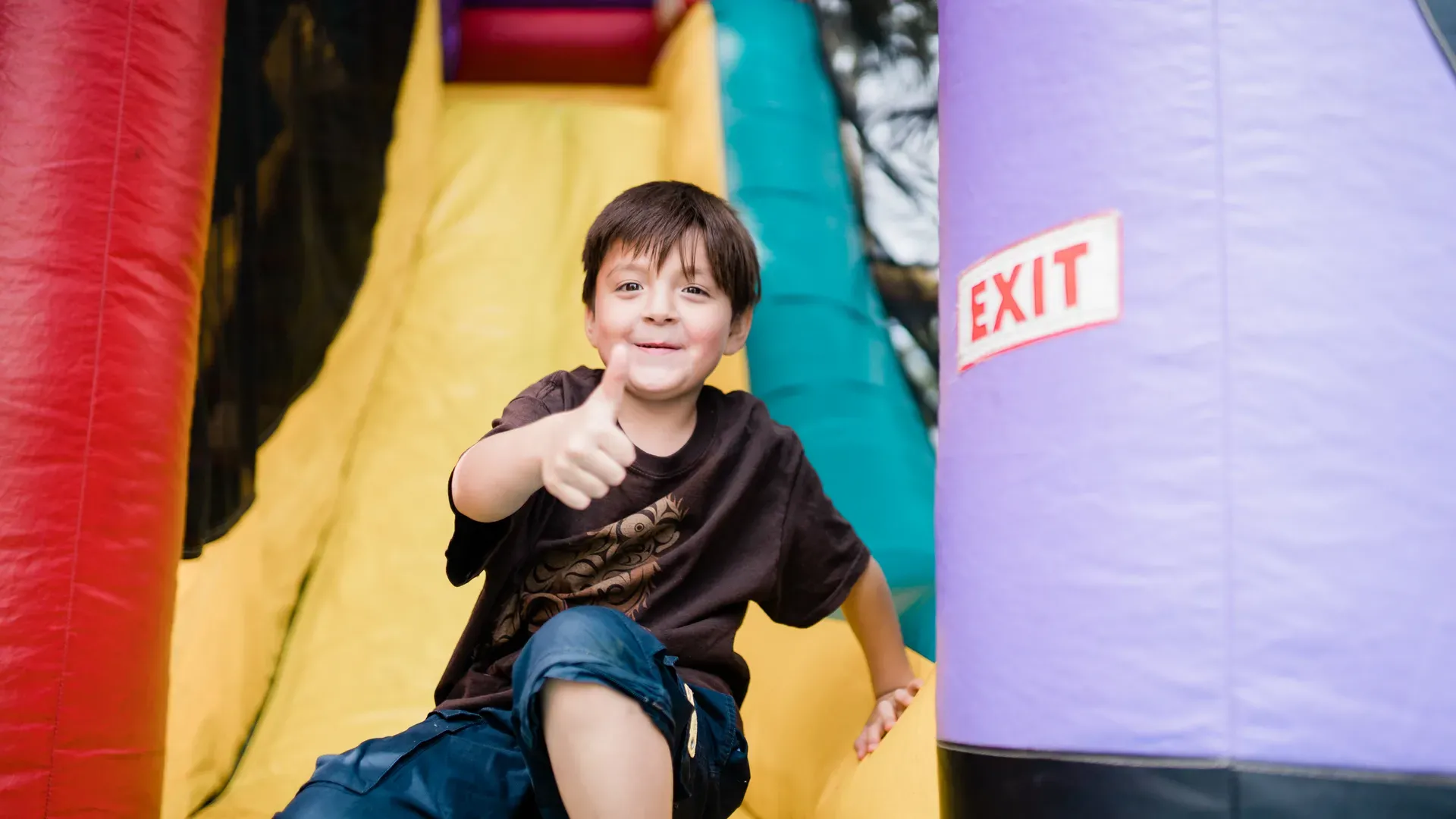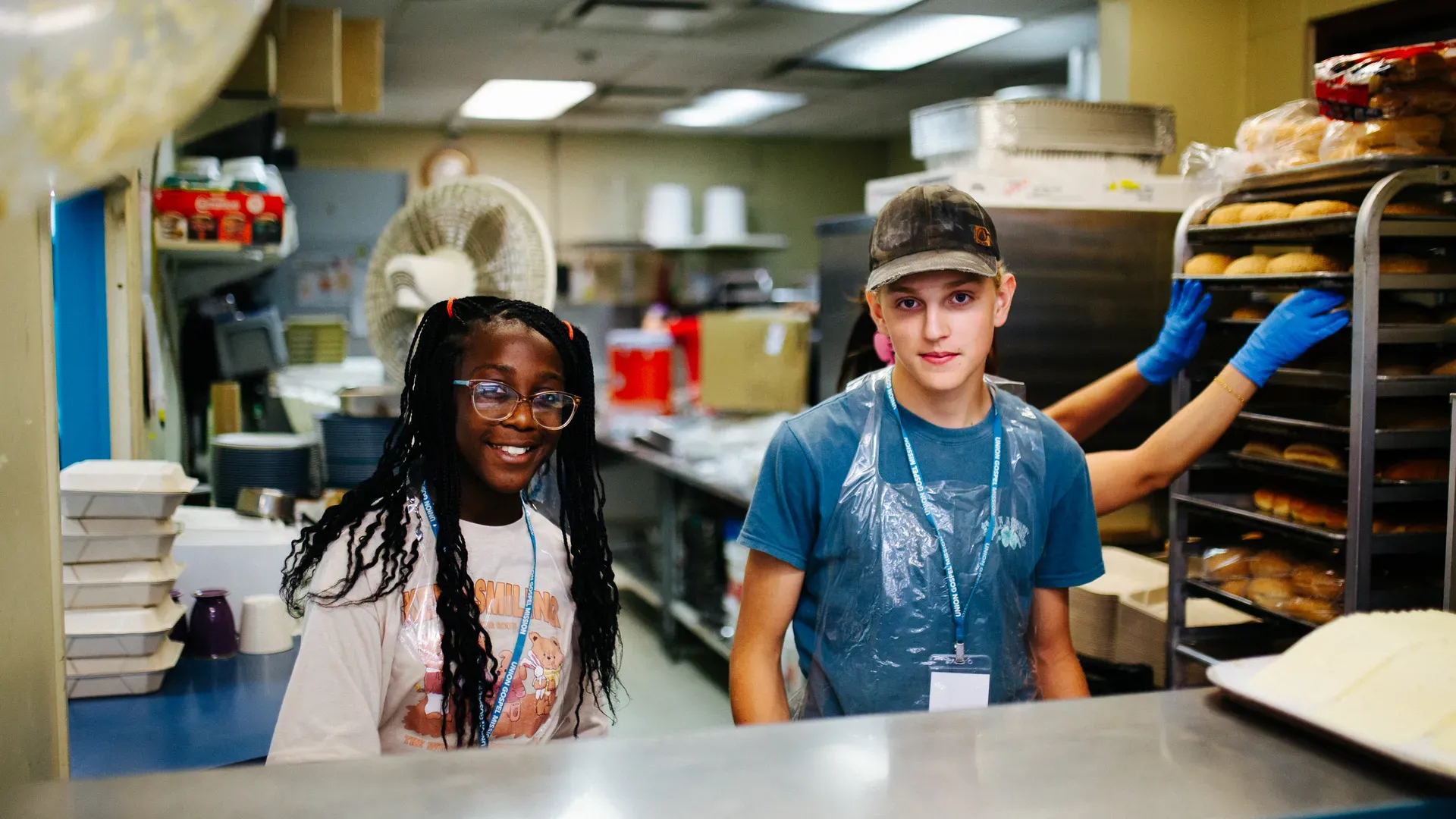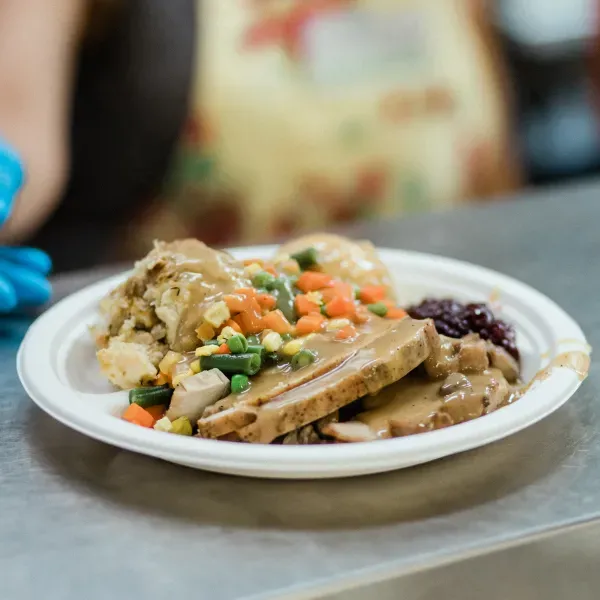Kids: they’re full of questions. Do ants have eyebrows? Who invented kites? How do I know that I’m real? Curiosity is an incredible gift, and helping children explore the world safely is often a full-time job. When it comes to life’s heavier topics—subjects like poverty, homelessness, and addiction—answering kids’ questions can sometimes feel like a tall order.
To support you in your caregiving journey, we spoke with three parents currently involved in various aspects of the work we do here at Union Gospel Mission about how they’ve connected with their kids around the topic of homelessness. Our hope is that these conversations provide you with a helpful blueprint on having healthy, open discussions with your children, no matter their age.
1. “Let’s find out together”

If a tough topic has come up in your home, approach hard questions as a team. Nicole M, UGM’s Manager of Media Relations & Communications, spends much of her workday talking about homelessness. But that doesn’t mean she has every solution on hand when her two kids, currently seven and three, bring up their homelessness concerns.
“One of the biggest things is recognizing that it's okay to tell your child ‘I don't know, but let me try to find that answer,’” she says. “Let your children know that it’s okay to ask questions, because if we ask questions, then maybe we can uncover answers or we can work together to find a solution. Encouraging a growth mindset—in both of you—is really important.”
While you take on learning as a family, it can be helpful to do some research on your own so that you’re instilling values in your children that you truly agree with. At six and three, Nicole T’s son and daughter are still small, but along with her work as Case Manager & Coaching Supervisor for the Men’s Recovery Program, she sees it as her responsibility to engage with the wider conversation around homelessness.
“I think it's about educating ourselves as parents first,” she says. “Reading blog posts, reading articles. Looking for YouTube videos or TED Talks on addiction and homelessness and poverty. Having a clear or decided answer for yourself makes it a lot easier to explain something to your kids.”
2. People are people
Kids are incredibly adept—often more so than adults—at seeing past appearances. But they sometimes need an example to follow when it comes to treating everyone with dignity and respect.
“I was raised to always have compassion and to show empathy, to never assume you know why a person is in this position,” says Joshua, dad of three and an Outreach Worker with Youth & Seasonal Programs. “Even before I was a parent, it was just natural for me to engage with anybody who was homeless in the exact same way I would with any other human being. What spoke to my kids early on was that I would always stop, ask people their name, and whether there was anything I could do to help.”
Showing kids that everyone matters—and has feelings—is especially important when children are young, and tend to pose questions at inopportune times.
“Sometimes you might be walking past somebody, and your kid, not understanding appropriate social norms, may ask something like ‘Why are all their clothes dirty?’ or ‘Why do they smell bad?’” says Nicole M, describing a cringe-inducing situation familiar to many caregivers of tiny truth-tellers. “Using that moment to show compassion, while also teaching your children about when it is appropriate to ask questions is important. Something I have shared with my children, is that they are always allowed to ask questions, but that when it’s a question about another person, and because we don't know how a person feels about themselves, the best way to ask a question like that is to whisper it into Mommy's ear.”
As Nicole M and her kids explored what it meant to ask questions and show compassion, they practiced together. “For a few weeks, if I did notice something that was different about someone, I would get down on my daughter’s level. And I would very quietly say, ‘Hey, you might be curious about this thing. The reason this person's clothes are ripped and they're sitting here is maybe they don't have a home. And it might not feel very good for them if we said that really loud in front of them. But what might make them feel good is if we said hello and wished them a nice day.’ And so practicing what’s appropriate after an awkward moment, I think, is helpful for kids because they learn what's modelled to them.”
3. Meet your kid where they’re at

Homelessness isn’t an individual phenomenon: it’s a systemic issue. But describing the ins and outs of provincial and federal housing policy is probably not the best way to engage a kid on why someone is sleeping on a busy street.
As a caregiver, you’re likely used to tailoring conversations to your child’s age and maturity level, and you can apply this practice to homelessness, too. For Nicole T’s six-year-old, this means starting with the basics. “My son is still trying to understand why not everybody has a home—because he’s always existed in this world with a house. From a psychological developmental state, he doesn’t fully grasp abstract thinking yet, so that really dictates how I answer him. We’ll talk about our feelings and our hearts. I’ll say, ‘You know, some people have encountered hard times in their life, or they didn't have parents who could help support them. Sometimes they walk around with a lot of pain in their heart, which makes it very difficult to have a house and take care of bills and buy groceries.’ So we talk about those things, creating those moments of appreciation and teaching.”
By comparison, Joshua’s kids, now 13, 12, and 10, are starting to be ready for more nuance in their understanding of homelessness. “As they’ve gotten older, we’ve had very open and frank conversations,” he says about his family unit. “I really believe that sometimes, as parents, we don't always know how much our kids truly understand. And so I've always spoken to my kids as if they are a little older than they are. Like, if I was talking to them about how drugs could lead you to homelessness, I wouldn't go into the details of the effects of every single drug. But I'm gonna tell them that there are these substances that sometimes take over your body and your mind and that they affect the way that you interact with relationships and workplaces, and how this would lead you, perhaps, to homelessness.”
Nicole M is seeing her conversations with her daughter evolve as they encounter new concepts together. “A recent question she asked was whether everybody has a right to housing, because at school, she learned the difference between a right and a privilege. The easy answer to this may seem like ‘Yes, everyone has a right to housing,’ but then the next question may be, ‘Then how come not everyone has it?’ And that’s a topic that’s very difficult to unpack with other adults, let alone trying to explain it in a way that a child can understand! I've had to think about what is developmentally appropriate, knowing that maybe I don't have to answer her right away. If a child is going to ruminate on something that doesn't have an easily solvable answer, it’s caring to be cognizant of that, to protect your child until they're developmentally capable of sitting with something uncomfortable. But then the flip side is not to underestimate the power that a child can have.”
4. Be prepared to combat stereotypes
No matter how we grew up or how we were taught, we will all likely have some deprogramming to tackle as we unpack homelessness with our kids. And our kids aren’t clean slates either: they pick up common stereotypes at school or from listening to other adults. Some of the role of parents is helping children assess and address problematic attitudes.
“It comes down to recognizing the myths,” says Nicole T. “My son was thinking about homelessness one day and said ‘Oh, is it because people are lazy?’ He didn’t even know where he’d learned that. I said, ‘It's not because they're lazy, or they don't want to work. There's a lot of pain that they're feeling inside their heart. And that makes it hard to move forward.’ As he gets older, I'll flesh that out: maybe people are living with addiction, maybe they’re facing generational and systemic challenges. But we’re starting off with the building blocks.”
When it comes to dismantling stereotypes, our kids can be forces for good in the world. “One of the things that we've talked to our daughter about, in seven-year-old terms, is how to humanize people who are experiencing homelessness,” says Nicole M. “When other friends, maybe on the playground, say mean things, or maybe don't know what homelessness is, she can think of the people in her life who have been homeless at times. And so she is this little advocate who will be like, ‘Homelessness is not something people want to do for fun.’ And she will say, ‘I know people who have been homeless before, and they're really nice people.’”
Learning opportunities are often spontaneous, and caregivers have to be ready to jump in and course correct. “I see this a lot with the kids I work with at UGM,” says Joshua. “Although most of our kids have grown up in this neighbourhood, they’re sometimes tempted to either demonize or be hostile towards homeless members of our community. And so I'll just take a moment to explain: we don't know what that person is going through. To make any assumption or to think negatively about them, it's not the right move. You would hope that if you were in a similar circumstance, that people would show you some grace and compassion. Any one of us can be in a similar situation. We're not an exception. But when you get to know their stories, you'll realize that their impact on all the people in their lives is just as powerful and profound as yours. And their lives are just as complex as yours. And their stories are just as beautiful.”
5. Invite kids into caring for others

The saying goes that actions speak louder than words, and this is often true in parenting. While talking with children about homelessness is an essential part of growing together, including kids in supporting homelessness initiatives can go a long way in building a foundation for their understanding.
“Most children are so openhearted,” says Nicole M, “And they will do most things with every bit of their being. So if you give them an opportunity to explore something new, they'll often grab onto that and get excited to learn more. For my daughter’s birthdays, sometimes we say no to gifts, but we’ll invite guests to bring two twoonies. One will go towards the purchase of her big present. And then one will go towards a charity of her choice. I think helping kids understand the spirit of generosity early is a pretty easy win.”
At one major holiday, Joshua and his kids made caring for others a family event. “I had the idea to host an Orphan Christmas,” he says, “But my budget was tight as a single dad. So I asked my kids, ‘Hey, guys, I have this idea. There's a lot of people who don't have a place to go for Christmas, they don't have family. I’d like to have them over, but in order to do so, it would mean that I couldn't give you guys your Christmas. I couldn't buy any gifts.’ And right away, they were just like, ‘Yeah, of course! How can we help?’ And that was just a reminder for me that this is the heart of what we do. It's not questioning, it's not conditional. It's just like, ‘You need help? I can help.’”
Helping practices can be as simple as praying for neighbours who are experiencing homelessness. “Around two years ago, at Christmas time, it was really cold,” recalls Nicole T. “My son saw the tents at Main and Hastings, and asked why people couldn’t just move into a house. We explained, and he said ‘Maybe we should pray for them to find a dry home.’ So we do that. Every night when we pray, we say ‘Who do you want to pray for?’ And he says, ‘The people who don't have homes.’”
The kids are all right
The good news for everyone caring for children is that influence is a two-way street: kids are our teachers, too. “Having children has taught me to have a deeper well of compassion,” says Nicole T. “I noticed that a lot of the trauma and the hurt and the pain for people we serve started when they were small, and that influences how I parent.”
“This next generation is so sensitive and kind,” says Joshua of the kids he works with everyday. “Their perspective is refreshing. I have a lot of faith in them and how they'll teach us.”
“Sometimes our kids see the world through a lens that we've been conditioned to ignore,” says Nicole M. “By having a conversation that might feel difficult, we might be able to learn things from our children about how to love our neighbours well.”
UGM’s Eastsiders After School Program is supporting kids and families in Vancouver’s Downtown Eastside. Learn more about this exciting program, and find out how you can help!


